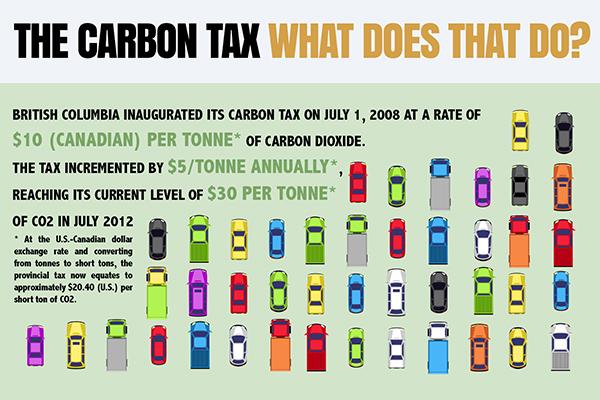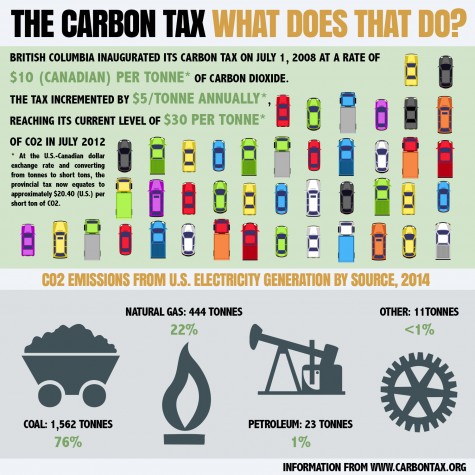Big environment or big business?
U.S. legislation battles with carbon taxes and environment
Recently, Coppell High School’s Public Forum debate teams have been researching the February topic on carbon taxes and whether or not the United States ought to adopt such a policy. The Coppell debate students live in a community that focuses on safe and healthy living environments that do not cause harm to its citizens, such as hazardous chemical runoff.
These students, like many, also have relatives that work for or own big and small businesses. The issue is, you would not first link businesses to the local, or even national, environment standards but these two factors are actually closely tied in this argument on whether or not a carbon tax should be enacted in the United States.
Arguments for the pro include the environmental and economic benefits of this tax as well as successful models such as the British Columbia’s economic success from the taxation of carbon. Arguments for the con include the impacts of taxes on factories which lead to laying off hundreds, if not thousands, of laborers in low-income situations, as well as the infringement of right from the federal government on big business and manufacturing companies.
The World Bank defines a carbon tax as “a form of explicit carbon pricing directly linked to the level of carbon dioxide emissions”. Carbon taxes are fundamentally implemented in order for production companies to reduce emissions in order to decrease the effect of greenhouse gases in the atmosphere, and to capitalize on this taxpayer income in order to then redistribute this source of income towards federal environmental projects.
Income from a carbon tax could also be used to provide funding for fixing deficits in a government budget whether on a local or federal level, additions in infrastructure projects such as streetlights and highways, or any other issues that the United States Federal Government deems necessary.
Successful models include the carbon tax of British Columbia, which is the leader in climate action by enacting this policy. An article written by the B.C. Ministry of Finance states that “The initial tax rate was relatively low and has increased gradually to allow families and businesses time to reduce their emissions. The tax is also intentionally broadly based and paid by all those who consume fossil fuels in the province”.
According to P.F. Vancouver for the economist, The British Columbia celebrates the title of being the only jurisdiction in North America to levy a charge on fossil-fuel consumption, plus managing the lowest personal income tax rate in Canada and one of the lowest corporate rates in North America, and finally seeing such environmental impacts such as the drop of per-person consumption of fuels by 16 percent.
Many Coppell High School teachers are following with the controversy as Evan Whitfield, a chemistry/physics teacher with a background in atmospheric science, adds to the argument.
“The wealth and the profits of the companies that are producing tremendous amounts of carbon need to be distributed into society so that key environmental and cleanup programs can be funded,” Whitfield said.
While Whitfield does raise a valid argument on the issue, many opponents immediately run to more complex arguments on the infringement of rights on big business factories that have a specific quota of products to produce.
If a carbon tax that applied to the entirety of the United States (including its territories) was enacted, many companies such as ExxonMobil would face an economic crisis as it would have to decrease its production, thus decreasing the income-to-profit ratio for the leaders of the company, and it would also lead to a decrease in salaries for the factory workers. They are always the first to see the cuts from the wound anyway.
A carbon tax in the United States would definitely bring environmental impacts, as well as an increase in state or national funds which they could spend on more environmental projects, which, who would want to argue against the environment? However, this does raise the question: do environmental impacts paired with the economic growth of the federal government outweigh the harms of this policy over big business manufacturing?

Grant Spicer is a Senior and second year staff writer for The Sidekick. Grant specializes in writing opinions articles and answering those difficult questions.














